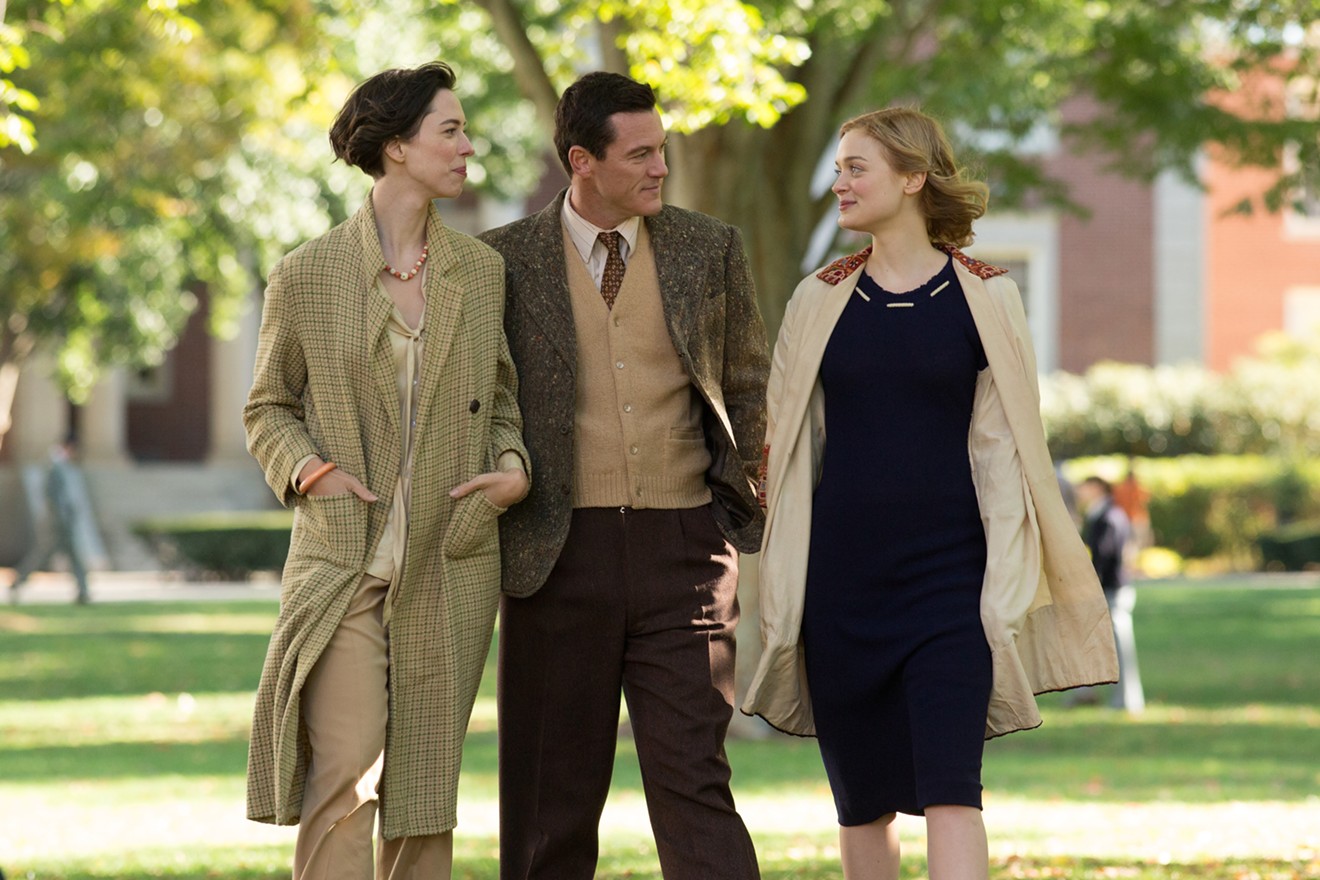Dr. William Moulton Marston (Luke Evans) gets caught by his wife and scientific partner Elizabeth (Rebecca Hall) making goo-goo eyes at his bright psychology student Olive Byrne (Bella Heathcote). This suggests the familiar scenario of a creepy older man having an affair with his much younger student, with a jealous and bitter wife left in tow, but when Olive becomes the pair’s graduate assistant, Robinson maneuvers the characters into a dynamic love triangle with full equality at all three points. Their priority, at first, is developing and perfecting a lie-detecting machine, which leads to pulse-raising moments of intimacy as everyone takes a turn probing the others for their desires and weaknesses — but never with malicious intent. In fact, the scenes of them testing out the proto-polygraph prove the sweetest and sexiest of the bunch. It’s like the antithesis to 50 Shades, where honesty and vulnerability are the dangerous turn-ons.
Robinson maneuvers the characters into a dynamic love triangle with full equality at all three points.
tweet this
Robinson takes full advantage of the fact that these characters are psychological pioneers, who quickly process emotions and feelings, leading to rapid-fire exchanges and surprising character responses. Early on, when Elizabeth bluntly tells Olive not to sleep with her husband, it’s relatively easy for Elizabeth to examine her feelings — and then apologize to Olive. Elizabeth goes back on that edict very quickly, of course, when she realizes that she is actually falling for Olive, and Olive for her. (William also loves them equally, as proven by the lie detector.) Yes, eventually the trio realize that they like to be tied up in ropes and role play, but those scenes are never lurid. For all the unorthodoxy of this burgeoning romance between three intellectuals, Robinson frames their love like Titanic’s Jack and Rose’s with a happier ending.
Hall’s sharp, wily performance here is the standout, channeling a charmingly acerbic Katharine Hepburn type. Every time Elizabeth cocks her head to the side and studies someone down her nose, you have no idea what she’s going to say or how deep it will cut. And yet Hall allows us to see the cracks in Elizabeth’s steely facade. Robinson makes both Elizabeth and Olive so strong as characters that the film evades the Hollywood trap of presenting untraditional sexual arrangements as pure male fantasy.
Costuming, from designer Donna Maloney, is immaculately tailored to the time periods without being too showy. It’s refreshing to see characters often wearing the same clothes in different scenes, like real people, who don’t toss away a dress after one night. No one element of this film draws so much attention that it distracts from the romance; everything in this past is so commonplace that you don’t even notice it. Two women tying one another up in ropes? Robinson makes it almost wholesome — the film suggests that you’re the weirdo for even thinking this arrangement might be strange! The most exceptional element of Professor Marston and the Wonder Women might actually be its comforting, radical normalcy.











